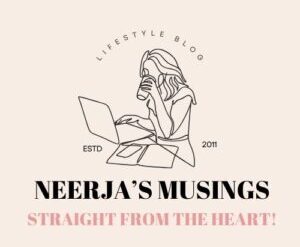 Social media has become an integral part of our daily lives, connecting us to people and information like never before. However, there is a growing concern about the negative impact it can have on our mental health. In this blog post, we will explore the dark side of social media and how it is affecting our mental health.
Social media has become an integral part of our daily lives, connecting us to people and information like never before. However, there is a growing concern about the negative impact it can have on our mental health. In this blog post, we will explore the dark side of social media and how it is affecting our mental health.
One of the biggest concerns with social media is the constant comparison it encourages. People often present their best selves online, showcasing their achievements and happiest moments. This can lead to feelings of inadequacy and low self-esteem when comparing oneself to others. The constant scrolling through other people’s perfectly curated feeds can lead to negative self-talk and feelings of inadequacy. Research has shown that social media use is linked to increased anxiety and depression. The constant pressure to present a perfect image and compare ourselves to others can lead to feelings of inadequacy and low self-esteem.
Another issue with it is the potential for cyberbullying. The anonymity of the internet makes it easy for people to engage in online harassment, which can be just as harmful as in-person bullying. This anonymity has emboldened people to say hurtful things that they wouldn’t say in person. The constant negativity and hate that can be found on these platforms can lead to feelings of anxiety, depression, and even suicidal thoughts. It can be a breeding ground for cyberbullying, which can have serious negative effects on mental health.
Social media can also lead to a lack of meaningful social interaction. Instead of face-to-face conversations, people are turning to online communication, which can lead to a feeling of loneliness and isolation. It can create an illusion of social interaction without the real connection that is necessary for mental health. It can also cause tension and conflict in relationships. Constant checking of messages and notifications can make one partner feel neglected or ignored, leading to communication breakdown and mistrust.
While it has revolutionized the way we communicate and connect, it has its share of negative effects on our mental health, relationships, and overall well-being.
It can be a major distraction, reducing our ability to focus and be productive. It’s easy to get lost in the endless scrolling and lose track of time, leading to procrastination and reduced work output.
The blue light emitted by electronic devices can interfere with our sleep patterns, leading to insomnia and other sleep disturbances. Late-night scrolling can also keep our minds active and make it difficult to fall asleep.
Social media can promote the fear of missing out (FOMO) by presenting a curated and often unrealistic view of other people’s lives. This can lead to feelings of envy, dissatisfaction, and a sense of being left out.
There is no doubt about the high addictiveness of social media. With constant dopamine highs from likes, shares, and comments. This can lead to compulsive use and interfere with other aspects of our lives, such as work, relationships, and self-care. It can contribute to addiction and decreased productivity. Scrolling through social media feeds can become a mindless habit, taking up valuable time and energy that could be used for more productive activities. The constant need for validation through likes and comments leads to addiction-like behaviour.
While social media has its benefits, it’s important to be aware of the negative effects it can have on our mental health, relationships, and overall well-being. By setting boundaries, being mindful of our use, and prioritizing in-person connections, we can mitigate these negative effects and use social media healthily and positively.
In conclusion, while social media has many positive aspects, it is important to recognize the potential harm it can cause to our mental health. By being aware of the negative effects of social media, we can take steps to limit our use and create a healthier relationship with it. It’s important to prioritize real-life interactions, seek support when needed, and remember that what we see on social media is often a carefully curated highlight reel, not an accurate representation of real life.


The comparisons. These affect me too and I try to remind myself life’s not limited to what people are showing on social media.
Good one, Neerja. Hope more people understand this and learn to not get affected
Agree. Social media has made us users in the worst sense of the word.